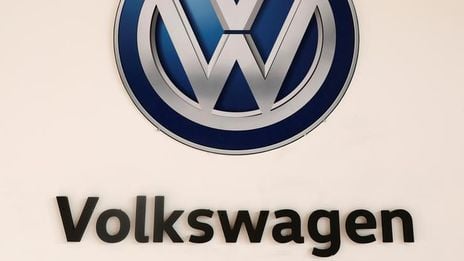LAS VEGAS, Jan 10 (Reuters) - As artificial intelligence becomes the new horsepower for car buyers, established automakers are redoubling efforts to match the digital features that set Tesla, BYD and other new rivals apart, industry executives and analysts said at the CES technology show in Las Vegas.
More than a decade after Tesla debuted cars with software that could be upgraded over the air like a smartphone, established automakers are still running behind in efforts to develop what the industry calls "software-defined vehicles," industry executives said this week.
Not so long ago, automakers boasted about horsepower and towing capabilities in their cars and pickups, but in the fast-changing world of technology that now dominates the auto industry, software-driven enhancements are prominent in consumers' minds.
The transition to software-dominated cars is challenging. Vehicles require higher standards for durability and safety than a phone. ChatGPT and other new AI systems are error-prone, and changing at a far more rapid pace than automakers' traditional product cycles.
Digital technology companies often test technology on customers before it is ready for sale. For automakers, that has not been the norm so far.
Mercedes-Benz has launched a "beta program" to test how ChatGPT artificial-intelligence technology can help drivers have more natural dialogue with the vehicle's infotainment systems.
"In the past, Mercedes was never thinking about doing a beta program," Mercedes software chief Magnus Oestberg said in an interview at CES. "But we have got to figure out how a large language model is actually going to be beneficial."
Allowing Mercedes customers to test a system still under development is not all that will change, Oestberg said. Mercedes will have to develop software and push it into vehicles on much faster schedules than the two-to-four-year product cycles normal in the auto sector.
"We're changing the IT infrastructure, we're changing actually our manufacturing line so that we can use over-the-air updates in the manufacturing lines. We're also changing how our dealers are doing it and everything," Oestberg said.
Efforts by established automakers to match technology industry software capabilities have cost billions, and have not all gone well.
General Motors on Dec. 22 stopped sales of its newly launched Chevrolet Blazer EV after customers complained of software-related glitches. As of Wednesday, GM still had not delivered a fix. It said owners will be asked to bring vehicles to dealerships once the software update is ready.
'STEEP CHALLENGE'
"It's been a steep, steep challenge," for established automakers to develop the software architectures to match Tesla's capability, said Mark Wakefield, who leads the global automotive practice at consulting firm AlixPartners.
Volkswagen late last year launched another overhaul of its troubled Cariad software operation after the unit missed deadlines to deliver technology for its EVs.
Now, Volkswagen is looking at technology industry partners to accelerate efforts.
"That's different than what we've done in the past," said Kai Grunitz, head of technical development for the Volkswagen brand. Software companies "have a different way to work than we have within Volkswagen or that we had in the last years. But that's what we also have to learn."
At CES, Volkswagen announced it would begin offering a version of ChatGPT in its cars later this year, the result of a partnership with Cerence, a U.S. software developer. Cerence's chief technology officer, Iqbal Arshad, said his company is in talks to partner with 10 to 15 major automakers, which he declined to name.
China's fast-growing EV market is the most intense battleground for Volkswagen, Mercedes and other legacy automakers, industry executives and analysts said.
Tesla, BYD and several new Chinese EV brands are offering in-vehicle displays that include gaming, videoconferencing and other advanced infotainment functions.
Chinese automakers announced deals at CES this week to buy powerful chips from companies including Nvidia and Intel to serve as the brains of increasingly intelligent vehicles.
Chinese brands led by BYD gained share in the world's largest vehicle market last year at the expense of foreign brands, the China Passenger Car Association said on Wednesday.
To catch up, Japanese automaker Honda Motor formed a joint venture with consumer technology and gaming company Sony in 2022. The Sony Honda Mobility venture aims to combine the automaker's experience in engineering and building vehicles with Sony's software and gaming expertise for a new line of EVs due in 2025.
It would be impossible for any automaker to match software capabilities on its own if they started now, Yasuhide Mizuno, CEO of Sony Honda Mobility, said at CES, highlighting the importance of the joint venture. "We don't have any know-how, even in Honda."
Developing and launching new software is one challenge. Getting consumers to pay for it is another, analysts and industry executives said.
Some automakers are charging subscription fees to use features such as partially automated driving. But only 25% of consumers surveyed by the consulting firm Deloitte said they would pay extra for software-powered features.
The window for automakers to tack on fees for new software functions is "three to five years, max," before the features become a commodity, Hyundai's chief operating officer, Jose Munoz, told Reuters at CES.
"Consumers are very, very demanding always."
(Reporting by Abhirup Roy in Las Vegas and Joseph White in Detroit Editing by Ben Klayman and Matthew Lewis)






